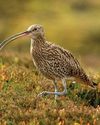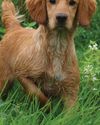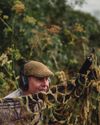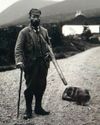
Globally, ticks are on the rise. They have been crawling around our planet for at least 100 million years, and in that time they have evolved into 850 species and built enough defences to put us on the losing end of a health battle. The British Isles, with our temperate climate, are at the heart of the global rise.
Many have cited global warming as a primary factor in driving up tick numbers. Warm and humid weather does favour tick biology. The number of months in which they are active is becoming longer with the milder winters and wetter summers. Even tick eggs are hatching much earlier. Numerous studies have shown that ticks have extended their ranges in the northern hemisphere. Beyond climate, there are a number of other factors that are probably unique to our islands.
From the turn of the 20th century, land use in this country has evolved, namely intensive farming. In the British Isles, the biggest driver of ticks is the ever-increasing number of hosts. This is mainly due to livestock from intensive farming and deer due to post-war afforestation. Ixodes ricinus (sheep tick) is the most abundant and widespread tick species in the UK. Unsurprisingly, it is also the one that’s responsible for the majority of tickborne illnesses.
Vectors of disease
It is important first to understand what ticks are. Ticks are parasitic arachnids — yes, spiders. They are vectors for a plethora of animal and human diseases caused by bacteria, viruses and parasites. In fact, ticks carry so many diseases at any given time that one should never touch ticks without wearing gloves.
この記事は Shooting Times & Country の May 24, 2023 版に掲載されています。
7 日間の Magzter GOLD 無料トライアルを開始して、何千もの厳選されたプレミアム ストーリー、9,000 以上の雑誌や新聞にアクセスしてください。
すでに購読者です ? サインイン
この記事は Shooting Times & Country の May 24, 2023 版に掲載されています。
7 日間の Magzter GOLD 無料トライアルを開始して、何千もの厳選されたプレミアム ストーリー、9,000 以上の雑誌や新聞にアクセスしてください。
すでに購読者です? サインイン

United we stand
Following United Utilities' decision to end grouse shooting on its land, Lindsay Waddell asks what will happen if we ignore our vital moors

Serious matters
An old gamebook prompts a contemplation on punt-gunning

They're not always as easy as they seem
While coneys of the furry variety don't pose a problem for Blue Zulu, he's left frustrated once again by bolting bunnies of the clay sort

Debutant gundogs
There's lots to think about when it comes to making the decision about when to introduce your dog to shooting

When the going gets rough
Al Gabriel returns to the West London Shooting School to brush up on his rough shooting technique

The Field Guide To British Deer - BDS 60th Anniversary Edition
In this excerpt from the 60th anniversary edition of the BDS's Field Guide To British Deer, Charles Smith-Jones considers the noise they make

A step too far?
Simon Garnham wonders whether a new dog, a new gun and two different fields in need of protection might have been asking too much for one afternoon's work

Two bucks before breakfast
A journey from old South London to rural Hertfordshire to stalk muntjac suggests that the two aren't as far detached as they might seem

Stalking Diary
Stalkers can be a sentimental bunch, and they often carry a huge attachment to their hill

Gamekeeper
Alan Edwards believes unique, private experiences can help keepers become more competent and passionate custodians of the countryside